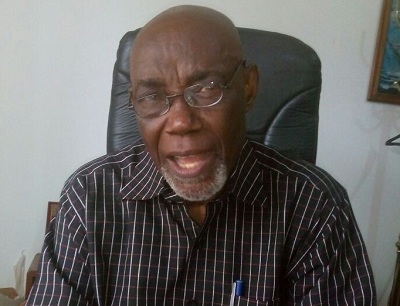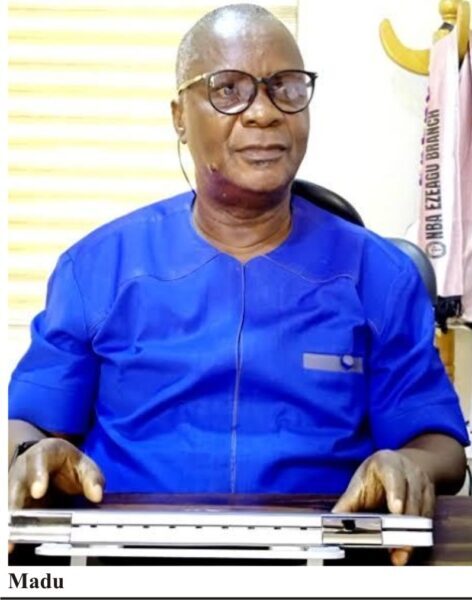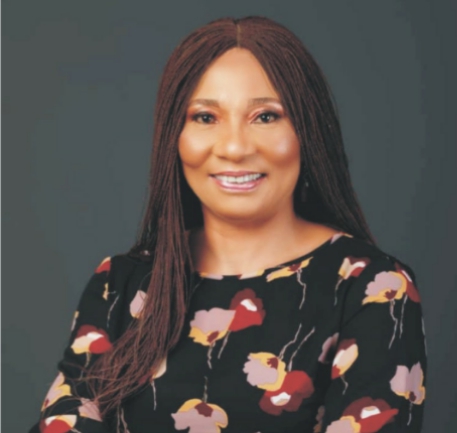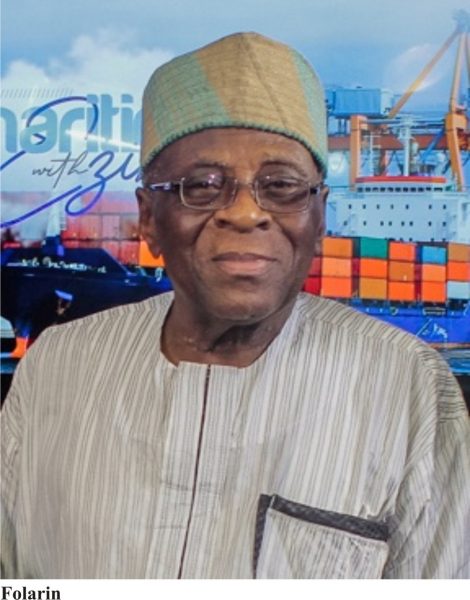Buhari Needs Women To Fight Corruption – Anaroke
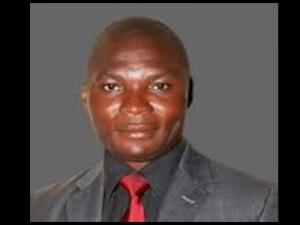
Mr. Kingsley Anaroke is a seasoned journalist with over 2 decades experience under his belt. He is the publisher/Editor-in-chief of MMS Plus, a robust Maritime Newspaper, and the founder of the MMS Hall of Fame, an annual platform set up to spotlight successful women in the industries. The event comes up on Tuesday, October 20th, 2015 at NAN Media Centre, Lagos. In this interesting, no-holds bars interview, Mr. Anaroke speaks on the forthcoming Hall of Fame event. He also bares his mind on sundry issues like the need for empowering women in the society, the maritime industry and his take on President Buhari’s seemingly gender-shy stance.
Enjoy:
Your platform, MMS Plus appears to be the only paper that celebrates women professional consistently. Sir, what is the reason behind this interest in women professionals?
Well, MMS currently is not the only paper that celebrates successful women. Two years after we came out, some other people started copying us. So it is no longer us alone. But we’re still very unique in our approach. Nobody has the concept that we have, because we didn’t copy from anywhere. It’s still original and unique the way it should be, and our vision is our vision. You can only copy a vision but you may not see it through because it is copied. The owner of the vision remains the same person that will see it through. This is the same way some people have copied MMS as a paper. A lot of ideas that we have people are copying left, right and centre. Just the other day, a boy who left here to start something on his own is still copying the company’s vision.
But I’m sure very soon, he will get tired of copying and stop mid way. The original owner of the vision is still there, because if it is not panadol, it is not the same thing as panadol. So we’re not the only one doing it.
But the idea behind MMS Plus Woman of Fortune Hall of Fame, called MMS Hall of Fame for short, is about trying to solve the capacity problem we have in industries. MMS on its own covers oil and gas, maritime, aviation, finance or logistics generally. And then in these areas, we have a situation where the industries involved are lacking able hands to handle certain things. A lot of people are involved in building capacity, trying to develop younger generations of leaders who will take over from the elderly people when they leave the scene. But the uniqueness of our own is that it is not a classroom thing. We want to see a level where we bring in some unconventionality in imparting knowledge to people. The classroom arrangement is such that you’re regimented. In the classroom, there must be a lecturer. We are more of less decentralizing that idea of regimentation. It is called mentoring. In other words, when you get a mentor to coach someone, they learn all the secrets that person knows. The mentor shares with you his or her experiences. MMS Hall of Fame is about building capacity in areas of interest. We decide to use the older generation of workers as professional women in different areas of career, private sector operators, entrepreneurs to build the next generation of leaders, particularly women leaders in industries.
Because there are not enough women in those industries?
Not just that there’re not enough women. We’re talking about leadership here. Nigeria still has leadership problems. So beyond just women, there are a lot of successful women today who are up there. From the knowledge they have gained over the years, they’ve been able to impart one or two things into their children. To say, ‘this is how things must be done, this is how to do this,’ that’s mentorship. How many men have such time to begin to teach or mentor people? They don’t have the patience to do that but women do them. It is not that we don’t have enough women, even if the ratio of women to men in many industries is not too fantastic. But we’re talking about having people with generational ideas that should be able to affect the lives of younger people to do something better than the current generation has done.
These days, you talk about computer age and the jet age, where children are computer savvy and they can go online and do things on their own. At the click of one button you connect the whole world, but when these children are taught other things to complement what they have learnt on their own, it becomes fantastic. MMS Hall of Fame is out to build leaders, to solve the leadership problems. Leadership in terms of career, entrepreneurship, even marriages at home. Not everybody believes that you can be a successful career woman and also a successful mother. They will tell you it is 50/50 chance. Some will tell you that you can pass one and fail the other. But I’ve seen women who have simultaneously managed these things. They’re building their career and they’re also managing their homes. You can have a successful career and also manage your home successfully. Role models can do that, and these Hall of Famers are role models.
Since its inception, do you think that the annual MMS Hall of Fame has been successful, has it achieved the reason for which it was founded?
You’re trying to quantify the success or failure of what we’ve done over the years. One is that we’ve been able to create awareness that there are role models with particular virtues worthy of emulation. For instance, on our front page here every week, we have a Woman of Fortune we spotlight. These women are not prostitutes. These are women most of whom have gotten to the peak of their career, successful women by all definition in their own chosen career.
We use these women to inspire the younger ones to come up by saying, ‘you see this woman, she’s a successful woman, this is what she has done, this is how she got there.’ These Women of Fortune is what we’re aggregating and assembling to mentor the younger people coming up, to say them, ‘you too can become successful.’ So over the years, we realize there are a lot of successful women who are not sung, nobody knows them. But through Hall of Fame, we’ve been able to discover them.
We started the issue of ratio, the ratio of women to men in the industry before others joined in. We’re talking about a campaign that advocates for a certain per cent of employment opportunities in industries should be left for women. It is not that women are weak, no. it is because we’ve discovered that women are good at managing certain offices even better than men. The issue of finance, for instance; women are better at managing finances than men because women are not prone to corruption like men. Women are more integrity conscious than men.
What is your view about women in governance?
If we have established that women are more integrity minded than men, and they can handle offices they’re given to handle, I’m not saying women don’t take bribe. Some do, but there are certain things you ask a woman to do, she will say, “no, I will not do it, I have to tell my husband’. But men will do those same things without saying, ‘I have to tell my wife.’ So first of all, women know that they have somebody they have to report to who act as ‘check and balance’ in the house. But the husband will go ahead and do things and damn the consequences, even though the wife does not know. That is why we say women should also be given opportunity to occupy some of these offices.
One of the unique things about this years’ Hall of Fame is that we’re talking about ‘Evolving a viable CSR Initiative’, and what we’re talking about is to move forward beyond saying ’empower women,’ to saying, look, set aside a certain per cent of your corporate social responsibility fund for the development of women. Companies should set aside fund to develop women, teach them how to fish so they’ll be able to fish and take care of their families. So when a company sets aside fund to empower women, train them on possibly how to be a ship-owner and own ships, the woman will in turn employ other people. A woman who has passion in that line will definitely make progress because women have more passion.
Agencies like NIMASA, NPA, NIWA, Shippers’ Council, should begin to train women on entrepreneurship so that when they retire, they have something to fall back on. We have Mrs. Ezenwa, one of our Hall of Famers, a wonderful woman whom I respect so much. While in the civil service, this woman developed a concept, she started making bags after she retired. In fact, she had to get a loan to set up an effective enterprise, LeLook. She makes bags. Today she has employed a good number of people in that place. When agencies make out such funds as part of their CSR Initiative to train women, at the end of the day they fall back on that. And when a woman handles that, you have less of divorces, less of broken homes, less of friction in marriages and even less of corrupt activities. So when a man is not there to take care of the house, the woman automatically fits in and takes care of responsibilities.
So that is why we’re saying, develop women. It is not to say women are weak. In fact, in most homes, women are stronger than men. Most women today are breadwinners in their families. All they need is a little push and then encouragement to actualize their potentials.
That is why this year, we have brought in Intels, the Oil and Gas giant from Port Harcourt, to come and support us because they have this concept in Port Harcourt, Women Empowerment Project, that I saw and I said, it’s a wonderful idea, please come and tell us how these things are done. They get these women, they train them in different fields and then they give them some soft loans to take off as part of their CSR. They have produced over 3,000 such women who have opened shops and businesses in different locations in the south-south, and are employing people. So by the time every agency and every company begins to look into that, you can imagine the result in the society. Now for any woman to be empowered, that means you’ve empowered a generation, because she gives birth and nurtures her children from that resource. She stabilizes her family whether the husband is stabilized or not, still from that same means.
The last administrations of Pres. Obasanjo and Pres. Jonathan had several women in key positions. Do you see this government continuing that trend, in view of the fact that we’re expecting the ministerial list?
If you ask me, let me not say that President Buhari is chauvinistic. But he’s gender-shy. And going by what he said about the first lady, fine, we know that the constitution does not recognize the office of the first lady. But we have first lady in America and many parts of the world. It is not the position that is bad, so if you say you don’t want it, it means you have little regard for women. And I am not the type that believes in bullying women. If he (Pres. Buhari) is the type that bullies women, then he’s not a gender-friendly person.
He appears reluctant about working with women. Buhari has not given women fair opportunity to really know what they can do. You cannot judge women by one or two persons’ mistakes. So we’re saying that Buhari should go back and look at the examples made by previous governments in appointing women. Even if he cannot do better, he should at least bridge the gap. If you’re talking about fighting corruption, you need women. Women will tell you, I will not do this and they will stand by their decision. But a man may dance to your tune once you show him money. Yes, some women may compromise, but less number of women are likely to dance to the tune of money than men. So the president should consider engaging more women. But I don’t see him correcting any imbalance created already in his new appointments because that bias is already there. Forget about the acting INEC chairman he kept there, that one is like a daughter to him. We want him to be able to give women opportunity to prove themselves. Give them opportunity to see how much value they can add in achieving your dream of having a corruption-free Nigeria.





